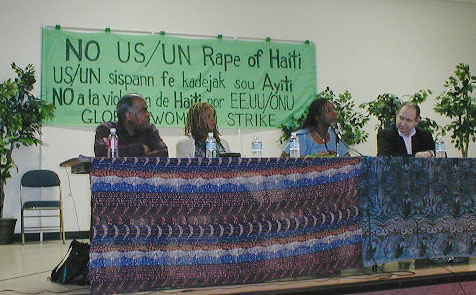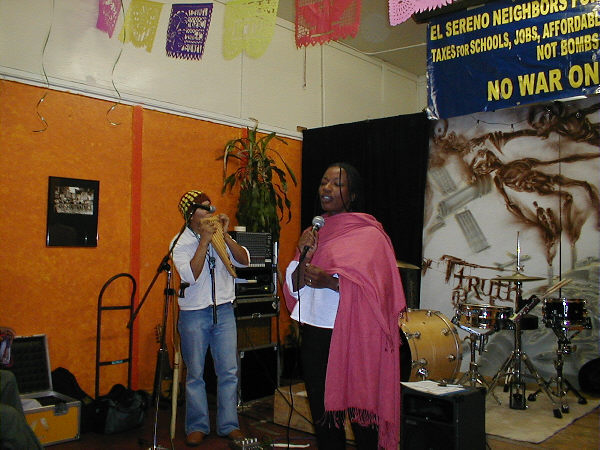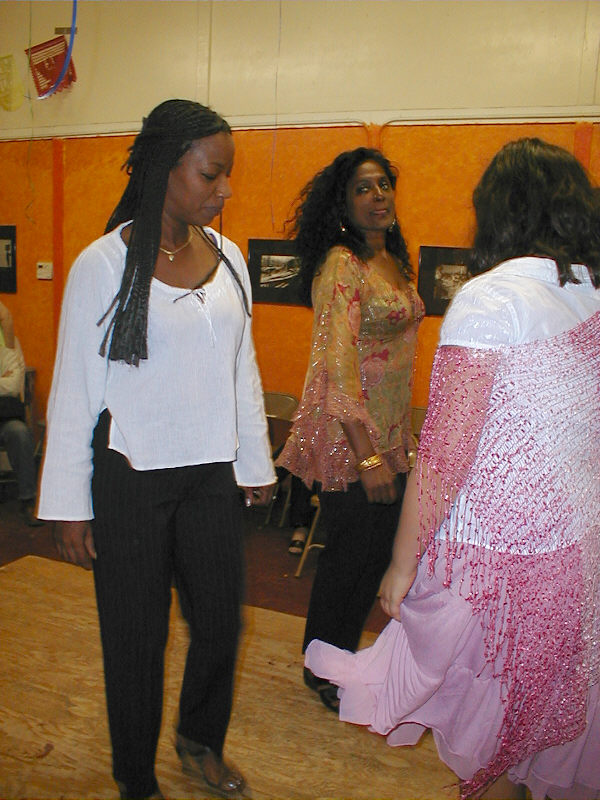| About Us | Contact Us | Calendar | Publish | RSS |
|---|
|
Features • latest news • best of news • syndication • commentary Feature Categories IMC Network:
Original Citieswww.indymedia.org africa: ambazonia canarias estrecho / madiaq kenya nigeria south africa canada: hamilton london, ontario maritimes montreal ontario ottawa quebec thunder bay vancouver victoria windsor winnipeg east asia: burma jakarta japan korea manila qc europe: abruzzo alacant andorra antwerpen armenia athens austria barcelona belarus belgium belgrade bristol brussels bulgaria calabria croatia cyprus emilia-romagna estrecho / madiaq euskal herria galiza germany grenoble hungary ireland istanbul italy la plana liege liguria lille linksunten lombardia london madrid malta marseille nantes napoli netherlands nice northern england norway oost-vlaanderen paris/Île-de-france patras piemonte poland portugal roma romania russia saint-petersburg scotland sverige switzerland thessaloniki torun toscana toulouse ukraine united kingdom valencia latin america: argentina bolivia chiapas chile chile sur cmi brasil colombia ecuador mexico peru puerto rico qollasuyu rosario santiago tijuana uruguay valparaiso venezuela venezuela oceania: adelaide aotearoa brisbane burma darwin jakarta manila melbourne perth qc sydney south asia: india mumbai united states: arizona arkansas asheville atlanta austin baltimore big muddy binghamton boston buffalo charlottesville chicago cleveland colorado columbus dc hawaii houston hudson mohawk kansas city la madison maine miami michigan milwaukee minneapolis/st. paul new hampshire new jersey new mexico new orleans north carolina north texas nyc oklahoma philadelphia pittsburgh portland richmond rochester rogue valley saint louis san diego san francisco san francisco bay area santa barbara santa cruz, ca sarasota seattle tampa bay tennessee urbana-champaign vermont western mass worcester west asia: armenia beirut israel palestine process: fbi/legal updates mailing lists process & imc docs tech volunteer projects: print radio satellite tv video regions: oceania united states topics: biotechSurviving Citieswww.indymedia.org africa: canada: quebec east asia: japan europe: athens barcelona belgium bristol brussels cyprus germany grenoble ireland istanbul lille linksunten nantes netherlands norway portugal united kingdom latin america: argentina cmi brasil rosario oceania: aotearoa united states: austin big muddy binghamton boston chicago columbus la michigan nyc portland rochester saint louis san diego san francisco bay area santa cruz, ca tennessee urbana-champaign worcester west asia: palestine process: fbi/legal updates process & imc docs projects: radio satellite tv |
printable version
- js reader version
- view hidden posts
- tags and related articles
The New Haitian Revolution: Resisting U.S. and U.N. Occupationby M. Showalter Friday, Jul. 22, 2005 at 12:07 PMla@crossroadswomen.net 323-292-7405 PO Box 86681, Los Angeles CA 90086 Reaching out for accurate news of Haiti, several hundred people, a majority representing the Black community and other communities of color in Los Angeles, took part in a public meeting June 16th at Holman United Methodist Church on the crisis in Haiti.
The New Haiti Revolution: Resisting U.S. and U.N. Occupation
By M. Showalter Reaching out for accurate news of Haiti, several hundred people, a majority representing the Black community and other communities of color in Los Angeles, took part in a public meeting June 16th at Holman United Methodist Church on the crisis in Haiti called The New Haitian Revolution: Resisting U.S. and U.N. Occupation. Haitian activists Lucie Tondreau and Pierre Labossiere and Ira Kurzban, attorney for kidnapped Haitian President Jean Bertrand Aristide, gave up-to-the-minute news on how grassroots activists inside Haiti are fighting to restore their democracy. The event was coordinated by Women of Color in the Global Women’s Strike and the Global Women's Strike/LA. Two hundred years ago the Haitian Revolution defeated Napoleon’s army, and Haiti became the world’s first Black Republic and the first nation born as a result of a slave revolution. The Haitian Revolution paved the way for the abolition of slavery throughout the Americas. Haiti also assisted with the liberation of Latin America by giving refuge & supplies to Simon Bolivar. In the latest action in the 200-year effort by the colonial powers to defeat the struggle for freedom of Black people of Haiti and to prevent them from serving as an inspiration to others, Haiti's democracy was attacked in 2003 by the US, France and Canada who, led by the US, invaded the country. US Marines kidnapped President Aristide at gunpoint, and replaced Haiti's democratic government with a US-backed, un-elected regime characterized by violence. Since the coup, rightwing death squads are surfacing, and supporters of Lavalas, the movement of President Aristide, are being targeted for attack. As many as 10,000 Haitians have been killed, the majority from the poorest communities which are the base of support for President Aristide, and thousands of others have been imprisoned and/or tortured. Despite this, the resistance of the Haitian people has been remarkable. To read the news, Haiti is presented as a country in undifferentiated chaos. But that's not the reality. At the public meeting, Pierre Labossiere of the Haiti Action Committee, Lucie Tondreau of Veye-Yo (the organization of Haitian activist Priest Father Jean- Juste), and the Haitian American Grassroots Coalition, and Ira Kurzban, who was also counsel to the Haitian Republic before the U.S. invasion, explained in detail events that led up the coup, and also underscored how US grassroots support for the Haitian resistance is critical to restoring democracy in Haiti. Pierre Labossiere said that coverage of Haiti in the mainstream media was a major obstacle to getting word to the U.S. that there is a crisis. He said its tone of coverage was so outrageous that any time the media reported violence, it almost seemed to be accompanied by the sound of clapping. “The Lavalas Movement is presented as savage,” he said. Underscoring the racist implications of the media portrayals, he said they seemed to serve a specific aim: “In the way they present Africans, it’s to say that no matter what they do to us, it is justifiable.” The thousands of Haitians who have been killed since the invasion include the elderly, children, sometimes whole families, and some of Haiti’s best hopes for the future. Pierre Labossiere cited a friend who barely escaped an attempt on his life and has had to live in hiding; he had set up nine schools for desperately poor children. “What crime had he committed?” he asked. Their killers carried U.S.-made weapons. US Marines have been replaced by UN forces led by Brazil to maintain the puppet regime led by the unpopular Interim Prime Minister Gerard LaTortue. However, UN forces make themselves scarce, or even clear the way for Haitian death squads to go into poor communities which are the backbone of grassroots opposition. The only hope for peace, said Labossiere, is the return of Haiti’s democratically elected president, Jean Bertrand Aristide, who is now in forced exile in South Africa. He noted that 7500 other democratically elected officials were driven from office at the invasion, nullifying the votes of every Haitian who made those electoral choices. “We are not taking this lying down,” he said. But Haitians are up against some formidable enemies. Lucie Tondreau, a Haitian who has won international recognition for her work with Haitian refugees in Miami, said Haiti’s situation is worsened by the involvement of non-government organizations (NGOs). NGO’s either are or have aligned themselves with the local elite in a joint effort to stamp out support for President Aristide and the movement that elected him. They see the Haitian grassroots as a threat to their privileges. “They didn’t like the way Aristide looked, his skin wasn’t fair enough,” she noted. Worst of all, he cared about the poor, the people who live on 67 cents a day, and who hoped for something better than a rigid hierarchy with very low-waged workers firmly at the bottom. Tondreau also spoke of the persistent double standard in how Haitians are treated if they manage to flee death squads and make it to Florida. While Cuban refugees are granted automatic asylum if they reach the U.S., the State Department deports Haitians back to dangerous situations on a daily basis. Attorney Ira Kurzban reported having recently returned from a South Africa meeting with President Aristide, who extended his greetings to the attendees at the event, “and to all who continue to support democracy for Haiti at this trying time.” Kurzban summarized some history of US involvement in overthrowing Aristide not once but twice since he was first elected in the 1990’s. He said the CIA, in fact, had orchestrated much of the phony news coverage, for example that the second election of Aristide was not legitimate. In fact the Organization of American States cited the last election that brought Aristide into office four years ago as free and fair. There was a dispute about only 8 Senate seats in that election and those cases were thrown out of court. He went on to say the democratic movement is gaining strength as more Haitians seek the return of their president, and more information on the true situation in Haiti is coming out. It continues to be critical to get the real news out about what is happening in Haiti. Participants at the event took copies of the Porto Alegre Declaration which calls for the return of democracy and of President Aristide to Haiti, pledged to collect signatures, donated and in other ways committed to help. More on the critical situation in Haiti can be found at the website of the Haiti Action Committee, www.haitiaction.com. Copies of the Porto Alegre Declaration, also in Spanish, Portuguese, and French, can be requested at 323-292-7405 or through the website www.globalwomenstrike.net. KPFK was the media sponsor of this urgent, informative public meeting. Co-sponsors included Alexandria House, ANSWER-LA, Eastside Café, El Sereno Neighbors for Peace and Justice, Danny Glover, IAC/LA, Office of the Americas, San Gabriel Valley Neighbors for Peace and Justice. It was endorsed by Ignacio Castuera, Pastor St John’s United Methodist Church, Watts; Luis Chase, Pastor, Hamilton United Methodist Church; Long Beach Area Peace Network; Prisoners of Conscience Committee; and Puerto Rican Alliance. Eastside Café Echospace also hosted an evening of music and spoken word on June 17th for Lucie Tondreau and Sharmini Peries, advisor to Venezuelan President Hugo Chavez on international relations who also spoke in Southern California in June. This event on LA’s East Side featured hip hop presentations by Posydun and Expowz, rap by Haitian artist JG, a photo exhibit on Haiti by Carlos Ugalde, and a Fandanguito Rebelde of traditional Mexican music.
Report this post as:
Activist Lucie Tondreau speaks on crisis in Haitiby M. Showalter Friday, Jul. 22, 2005 at 12:07 PMla@crossroadswomen.net 323-292-7405 PO Box 86681, Los Angeles CA 90086
error
Report this post as:
Lucie Tondreau & Chavez advisor Sharmini Peries at Eastside Cafe Echospaceby M. Showalter Friday, Jul. 22, 2005 at 12:07 PMla@crossroadswomen.net 323-292-7405 PO Box 86681, Los Angeles CA 90086
error
Report this post as:
|





